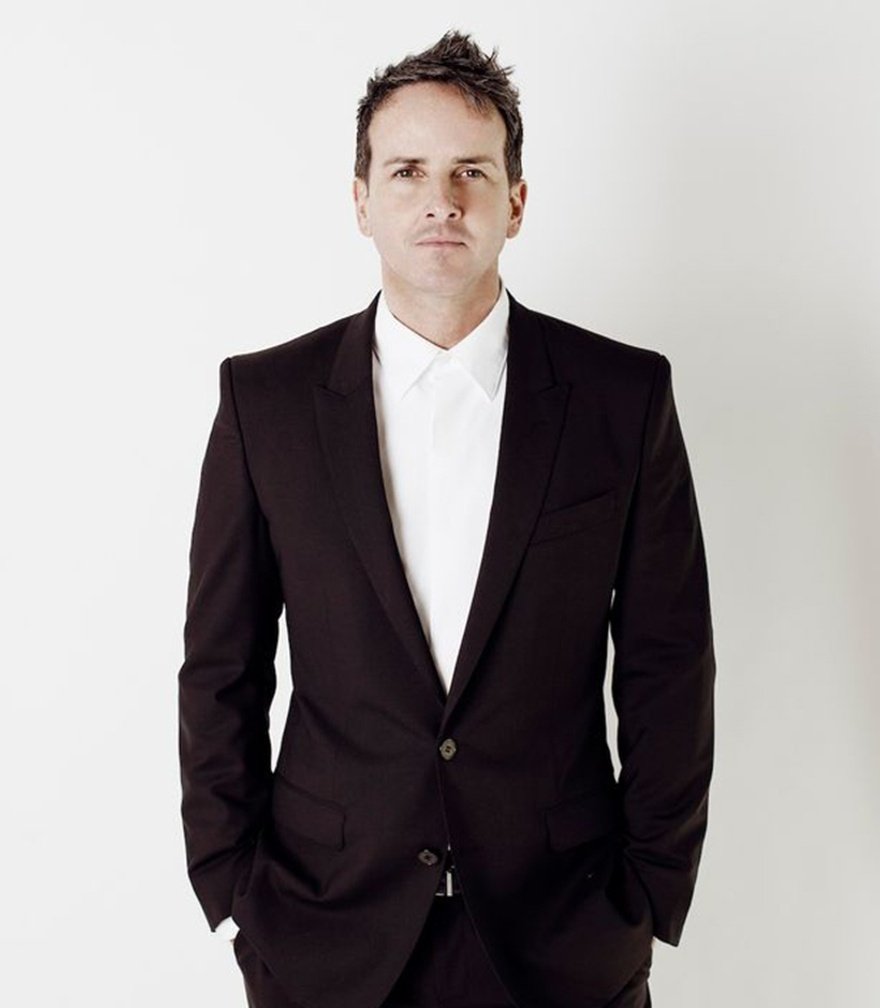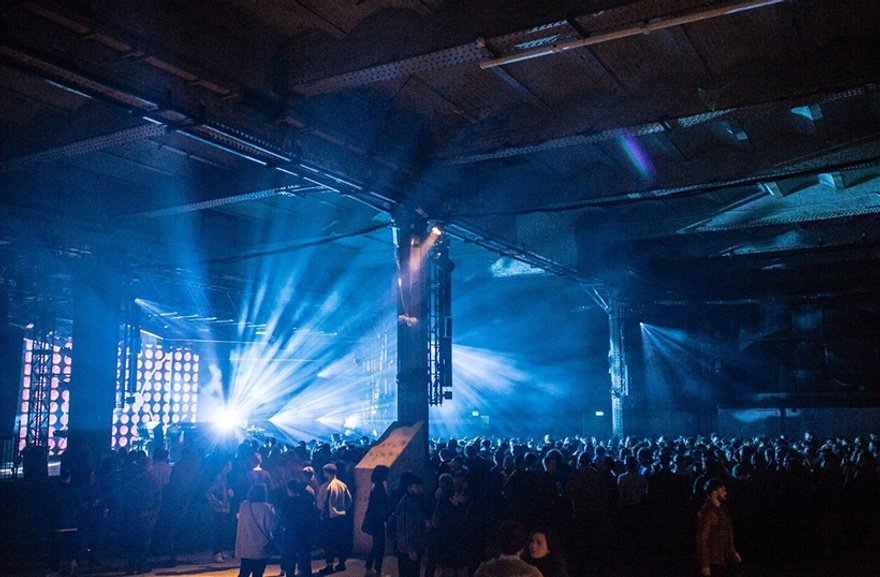The night-time economy adviser for Greater Manchester and co-founder of the Parklife festival and the Warehouse Project talks to Emma Lake about what support the urban county needs to survive the crisis.
What has been monopolising your attention in the last few weeks?
When we went into lockdown one of the things I was very keen on doing was raising as much money as possible for people across Greater Manchester who had fallen through the cracks. So last month we set up streaming platform United We Stream. We've since had 14 million views and raised more than £400,000. But we're only a small team so, while it's not going to stop, it won't be continuous – it's more important now that we put our thoughts to recovery.
How are you starting to prepare Greater Manchester for recovery?
We were asked by the mayor of Greater Manchester, Andy Burnham, to create a taskforce to look at how the city region can come out of lockdown, with guidance for restaurants, bars and clubs. The problem now is that there's no guidance whatsoever from the government. Everyone is going into this blindfolded; we have this date of 4 July, but no confirmation or any instruction.
If we are returning on 4 July with reduced capacity, I would ask the government to very quickly loosen some licensing laws so premises don't have to go through a long, drawn-out process to secure a licence to have tables and chairs outside and have to pay licensing fees. I think in some cases that could be the difference between make or break.
We're also looking at how we can open safely and quickly while protecting the customer and, just as importantly, the staff. That's so important in Greater Manchester: we've got 415,000 people who work between the hours of 6pm and 6am – their needs are imperative to us.
How much of a role can town and city planners play to help hospitality?
We're lucky to have Andy – he's seen how Westminster operates, he's always asking for more devolved powers and he's from this area, so he really understands the importance of the night-time economy in the city. Anywhere you go in the world, if you say you're from Manchester, people think of football and hospitality – going out, restaurants, bars, nightclubs, music, it's in our DNA. Andy supports that and recognises its importance, and I think that's where we differ from other city regions.
Going into this, officials were working with me on a blueprint for the night-time economy, looking at improving transport, being more inclusive, more diverse and safer. Obviously, this has come along as a complete curve ball and now we have to turn our attention to recovery. That's all it's about now: recovery, recovery, recovery and how we do that in the quickest, safest way.
What will the next few months look like for city centres, with people continuing to work from home and avoiding high-density areas?
I think it's going to be about supporting local business, particularly independent pubs. The pub is the heart of most villages and I think there is an opportunity here for the other nine boroughs in Greater Manchester. People have previously talked about going into town on a Saturday, going into Manchester city centre – this could be a real chance for the villages and towns around the city to flourish and for people to stay local. I'm hoping we see the strength of the independents coming back.
The chancellor has acknowledged we're on the edge of an unprecedented recession because of this crisis. Can hospitality play a role in job creation as the country looks to fight its way out of that?
Pre-Covid I was talking about how the night-time economy across Greater Manchester was propping up the traditional high street, which was dying away. Six years ago, Altrincham in Trafford was one of the most boarded-up town centres in the whole of the UK. Then they reinvigorated the market square and all of a sudden it became an immense success and loads of small independent bars and restaurants started to sprout up. In 2018 it was awarded the Great British High Street's Champion Award. It just shows how over five or six years the night-time economy can improve an area and in Greater Manchester that's really understood.
I can't name one venue in Manchester city centre with a rateable value of £51,000 or less
Will some hospitality businesses find reopening harder than others?
I'm the co-founder of Parklife festival, which is 80,000 capacity, and the Warehouse Project, which had 250,000 through the door last year for 25 parties. Obviously, these live events will be the very last to open. People have asked if you can have 200 people at a gig in a 1,000-capacity venue and the answer is yes, clearly you can, but it doesn't work. It doesn't financially stack up, it's not viable for the operator and for a great gig, you need atmosphere. Even if you were able to do it, I don't think it would last very long, I think people would much rather wait.
You're in regular communication with other night-time advisers – what are the lessons being learned in other countries?
There's a lot of discussion around distancing. We currently have the two-metre rule, but the World Health Organization is saying one metre and other successful countries are sticking to one metre. A survey we've put out in Greater Manchester has suggested that if independent restaurants open on a two-metre rule, 30% will survive; if they open on a 1.5-metre rule, 50% will survive; and if they open on a one-metre rule, 70% will survive.
Other areas where I can see we need to act are grants. I can't name one venue in Manchester city centre with a rateable value of £51,000 or less. There's a tiny pub in the city centre that's been there since 1806 and the rateable value is £53,000, so they miss it by £2,000. It should have been a sliding scale of support up to around £150,000, rather than stopping dead on £51,000. The government also needs to help more with the insurance companies.
Some countries have done a fantastic thing of announcing a one-year VAT reduction on food and beverage, so maybe we could look at reducing that from 30% to 5% until we reach normality again. They're key points that could potentially save two million jobs in the UK.
Another thing we've seen from Europe is that when businesses are allowed to open, if it will be at 50% capacity, they should still have the option to remain closed. If it's not viable to open at 50% and they can't make it work, they should be able to remain closed and still receive benefits. If we look back seven or eight weeks ago when Boris advised people not to go to clubs, pubs and restaurants, that one word, ‘advice', decimated the industry and caused so much damage financially. For those three days bars, restaurants and clubs were fully staffed, fully stocked and nobody was turning up. Now the government needs to sit down and speak to taskforces, of which there are many, and take some advice.
It's up to the industry to show exactly what they're doing to gain confidence to get customers back
Have you been able to get an insight into consumer behaviour from other countries?
There seem to be two camps: the 18- to 25-year-olds, who, the second the government say "OK, you can go to a bar", will be out of their mum's back doors quicker than Usain Bolt, without any consideration. Then there is the second camp, which is more the middle-aged people, who will probably give it two to three weeks and think about how busy restaurants might be and if the room felt clean the last time they visited. This camp will want a bit more time to gain confidence – but I think that will be weeks rather than months.
I'm certainly looking forward to going for my first meal and it won't be long after 4 July, but I will be interested before we go to know what measures have been put in place. I'm hoping restaurants won't be using salt and pepper pots, but offering sachets instead. I'm hoping to see disposable menus, hand sanitiser on tables and one-in, one-out systems for toilets – there are so many things you can do that don't cost much at all.
How has hospitality in Manchester already diversified during this crisis?
We've seen, as the whole of the country has, some great people doing takeaways with food and beer. We've also seen some nice examples of people diversifying to help. When we went into lockdown, Greater Manchester Police contacted me and said: "Look, festivals are cancelled – do you know anyone with hand sanitiser because we're running out". I put something out on Twitter and Didsbury Gin changed its production line to make hand sanitiser and it solved the problem for Greater Manchester Police. Those behind the Creameries approached loads of other restaurants, bars and clubs across Greater Manchester and together they're putting out 65,000 meals a week to vulnerable people.
You've expressed some concerns about people gathering to consume takeaway products. Does hospitality need to take a lead?
I have a slight issue with the takeaway beer thing – the operators themselves aren't doing anything wrong, but the public is. We're seeing far too many people buy takeaway beer and stand outside the pub to drink it, which defeats the object.
But, I think the good operators are ready and they have been extremely sensible throughout this. I saw only last weekend that where people had congregated, a couple of operators had gone out and cleared up. They didn't have to, but they're operating really responsibly. I think as lockdown eases it's up to the industry to show exactly what they're doing to gain confidence to get customers back.
Is Manchester looking at marketing to attract tourism fairly soon?
I sit on one of the recovery panels and certainly Marketing Manchester is now gearing up for staycations. Many, many people are not going to get a holiday abroad this year, but I can guarantee many will be holidaying in the UK, so there's a real opportunity for the businesses that have been closed if we get it right.
Sadly for us, as Ian Brown from the Stone Roses said, "Manchester has everything apart from a beach", so I don't think we're going to see very many people on towels, but I think some of those destinations could really feel the benefit.
What do think the next few months hold?
I suspect that we may see things move a little bit faster than everyone is anticipating. That's what I'm seeing in other places. Everyone's had a rotten few weeks and now I think we'll see change coming. I can certainly see a light at the end of the tunnel.
Continue reading
You need to be a premium member to view this. Subscribe from just 99p per week.
Already subscribed? Log In











